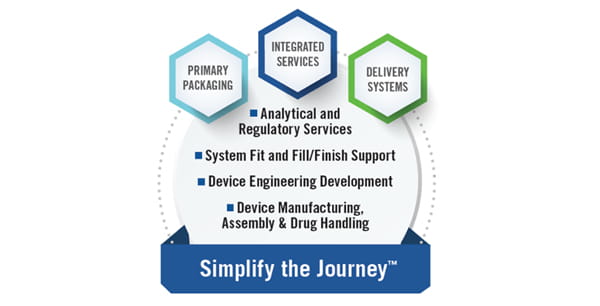Delivering Macromolecules: Challenges Associated with the Delivery of Biologic Drugs
Biologic drugs, rather than being synthesized from other compounds, are generally made using human or animal proteins. At the molecular level, they’re usually larger and much more complex than regular drugs. Routine oral administration of biologics has not been mastered as there is enzymatic and pH-dependent degradation of drugs in the stomach and intestines. Low permeability of epithelial cells that line the gastrointestinal tract means that proteins and peptides typically have extremely low bioavailability in the range of around 0-2% when taken by mouth.
![]()

Developers need to look beyond the formulation of a stable drug all the way to patient compliance. How will the patient receive the dose, in what setting and with what level of pain are all questions that should be considered from early development stages. As biologics continue to push the boundaries of what was historically possible in the drug treatment area, delivery devices are ready to assist patients in successfully complying with stated dosing regimens. If one can formulate to the traditional <1mL space with a reasonable viscosity and a liquid stable formulation, an auto-injector may be all one needs to finalise their combination product choice. Move outside any of the standard formulation parameters and the newest technology is more applicable. When looking at approved combination products, such as Amgen’s Repatha®, each cartridge contains 420 mg of evolocumab in 3.5 mL of solution (120 mg/m)1. The wearable device approved as part of Amgen’s combination product allows multiple minute delivery of a high-volume biologic in the convenience of a patient’s home.
Numerous pitfalls exist along the journey to bring a biologic combination product to market. One must ensure the right analytical methods are in place, have a repeatable, controlled manufacturing process, manage poor yields, test compatibility of drug with device, design an ideal device through human factors, navigate successful clinical trials all whilst regulating and testing to the appropriate regulatory agency expectations. Navigate these challenges well, and you have a robust process and product. If the challenges are navigated poorly, difficulties should be expected such as unacceptable extractables or leachables, poor human factor results and inconsistent yields.
One concern is that any change downstream will detrimentally impact submission deadlines and the speed with which to get to market. How quickly a drug gets to market is often, but not always, an indicator of how successful it will be. Minimising change can be mitigated using several recommendations:
- Engage with the subject matter experts, even if they are third parties, to ensure you fully understand downstream impacts of upstream decisions
- Choose the best packaging materials to minimise drug interaction and enable design flexibility, stability and lifecycle management
- Pick the delivery device sooner rather than later for the best possible chance of launching with the device
- Minimise the number of downstream vendors to engage with parties who understand and have experience in successfully navigating combination product testing and registration.
West can help you Simplify the Journey™ with our new Integrated Solutions Program. Click here to learn more about packages that include not only the primary container and delivery system, but also for analytical testing, regulatory support and contract manufacturing/design options .
Simplify the Journey™ is a trademark of West Pharmaceutical Services, Inc., in the United States and other jurisdictions.
Repatha® is a registered trademark of Amgen, Inc.




